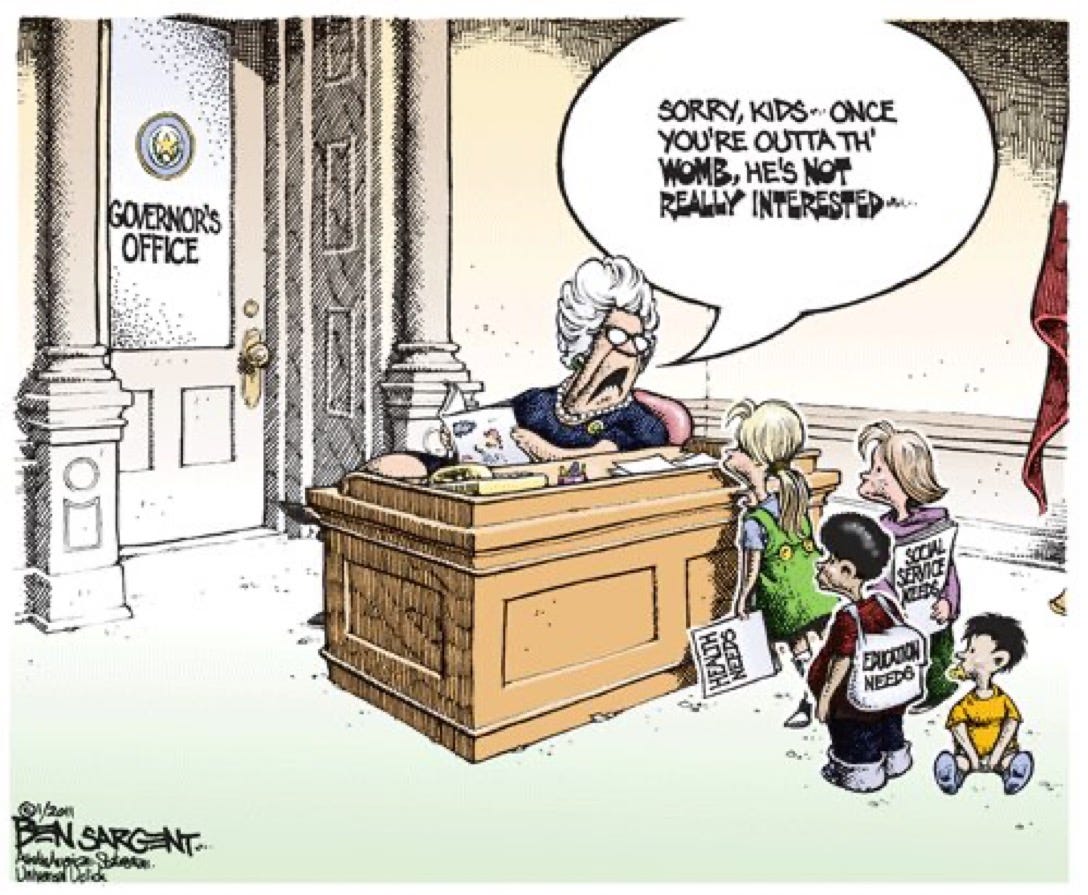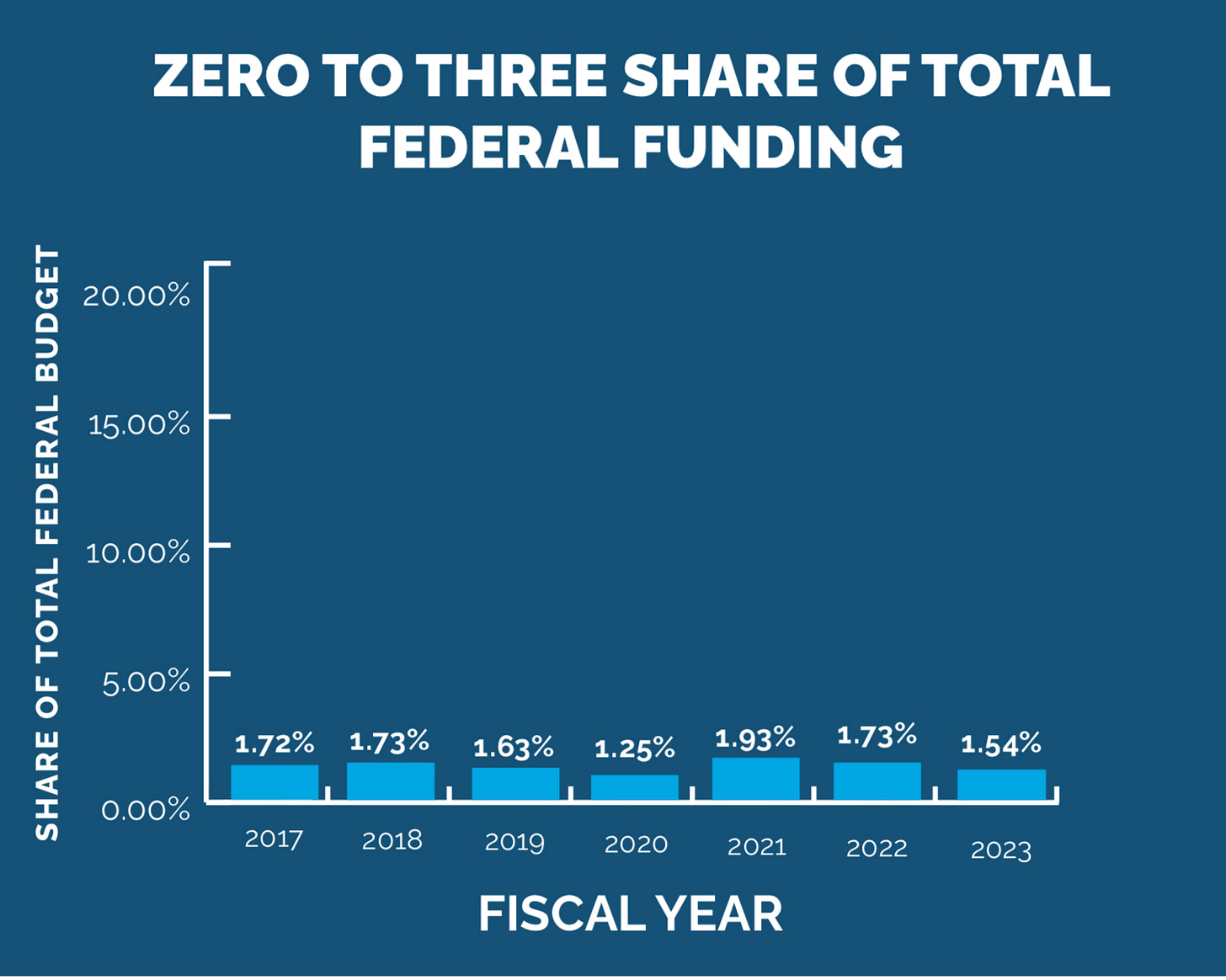When it comes to politics, public policy, and babies, our nation’s political system has developed a new and extreme form of absurdity. In Alabama, frozen embryos created by in vitro fertilization (IVF) have been declared to be “extrauterine children” in a “cryogenic nursery” by the Alabama Supreme Court with the immediate consequence that access to IVF for couples who wish to have an actual baby is rapidly being eliminated since this could subject medical personnel in IVF clinics to “wrongful death of a minor” prosecutions while creating and storing IVF embryos.
The “life begins at conception” crowd chased the car and caught it, but now are at a loss as to how to respond in the aftermath of confusion that threatens the use of IVF for people who hope to have children. Politicians are vowing to find policy solutions to the dizzying array of questions that have been raised about whether the discarding of IVF embryos can result in “wrongful death” prosecution in Alabama, the qualification of embryos for the Child Tax Credit, whether IVF clinics can now apply for child care funding, etc. As part of the fallout, President Joe Biden, presidential candidates Donald Trump and Nikki Haley, House Speaker Mike Johnson, and governors across the country (see THIS and THIS) are issuing statements and vowing to address the policy issues that have arisen out of the Alabama Supreme Court decision.
The absurdity of all this becomes all the more tragic when we consider how little attention these same policymakers, judges, and organizations are spending on the lives of children who have already been born, such as rising rates of maternal, infant, and child mortality in this country.
Source: Photo via Pixabay
As an example, while Arkansas Gov. Sarah Huckabee Sanders has signed a law to build a “monument to the unborn” on the Capitol grounds, she opposes extending Medicaid’s postpartum coverage from 60 days to a year for pregnant women. Extending postpartum coverage could play a major role in cutting maternal mortality in Arkansas, which has the highest maternal mortality rate in the country.
Frankly, Gov. Huckabee Sanders’s failure to provide health care services to mothers post-delivery is the opposite of being pro-life.
Furthermore, in the aftermath of the Dobbs Supreme Court decision, there has been a reported increase in the number of births, and these mothers and babies disproportionately find themselves in states where services, supports, and outcomes for children and pregnant women are abysmal.
As reporters Emily Badger, Margot Sanger-Katz, and Claire Cain Miller found:
…the 24 states that have banned abortion (or probably will) fare worse on a broad range of outcomes than states where abortion will probably remain legal, including child and maternal mortality, teenage birthrates and the share of women and children who are uninsured.
Source: Ben Sargent Cartoon, Texas Observer
The Status of Babies
With 2024 being an election year, we are guaranteed to be subjected to many examples of the time-honored tradition of politicians posing with or kissing babies. If only they would take real action to support babies while in office.
Considering that budgets tell us what political leaders value, a report by First Focus on Children and Zero to Three found that, while babies and toddlers represent 3.4% of the U.S. population, they receive just 1.5% of all federal spending.
Source: First Focus on Children and Zero to Three, Babies in the Budget, Aug. 2023.
Babies and toddlers are clearly not a priority.
Despite infant mortality rates rising for the first time in 20 years, the House of Representatives has responded to the current crisis with deep cuts in funding to programs of importance to babies. In a letter opposing the proposed cuts by the House, First Focus Campaign for Children wrote:
The bill eliminates funding for Healthy Start (which seeks to reduce infant mortality), the Teen Pregnancy Prevention program, Title X Family Planning, Tobacco Prevention and Control, and Firearm Prevention and Mortality Prevention Research. Moreover, the legislation cuts funding for the Maternal and Child Health (MCH) Block Grant. In the midst of rising maternal, infant, and child mortality rates in this country, we should be investing in these programs, not eliminating or cutting them.
The threat to child health is compounded by the disenrollment of over 3 million children from Medicaid coverage by states (which is happening after the expiration of the Medicaid continuous enrollment provision that was in effect during COVID-19), outbreaks of vaccine-preventable diseases such as measles due to declining vaccination rates among children, and continued threats to babies and toddlers from environmental hazards, such as lead.
As for the nutrition of pregnant women and babies, the Special Supplemental Program for Women, Infants, and Children (WIC) is facing a $1 billion shortfall, which could leave an estimated 2 million infants, toddlers, and pregnant women without nutrition services this year.
🎧 Listen to Speaking of Kids Podcast Episode #7, “The Urgent Need to Protect WIC,” with the National WIC Association’s Nell Menefee-Libey here.
Moreover, the United States is also the only wealthy nation in the world that has failed to adopt a family-friendly policy agenda, and therefore, families in this country lack a guarantee of paid family medical leave or a comprehensive child care system.
My colleague, Michele Kayal, adds that Congress is failing to address other critical challenges facing babies and toddlers, including:
Babies are more likely to enter foster care: Infants and toddlers are twice as likely as older children to enter foster care. Nationally, nearly 105,000 children from birth to age 3 entered foster care in Fiscal Year (FY) 2017. The rate of babies entering foster care that year was more than double the rate for older children, with 6.6 per 1,000 children ages 3 and younger entering foster care, compared to 2.8 for ages 4 to 17.
Babies are more likely to be evicted: Children under 5 make up the largest group by age of those whose households have had an eviction filed against them. Black babies face disproportionately higher rates.
Babies are more likely to live in poverty: Roughly 40% of babies and toddlers live in low-income families or families experiencing poverty.
As if all of this is not bad enough, certain politicians are proposing to gut the Constitution’s 14th Amendment guarantee of birthright citizenship. As I explained in a recent newsletter, attempted to abolish birthright citizenship targets and harms one group disproportionately: BABIES.
Commit to Kids
We can and must do better by our babies and our children.
1. Policymakers Should Restore Attention to the Needs of Babies and Toddlers (rather than zygotes). Parents and child advocates must reengage with legislators and policymakers at all levels of government to demand the prioritization of children in policy decisions. Organizations that advocate for children's issues, including First Focus on Children, need voices to amplify the importance of investing in our youngest citizens and to demand that candidates make children a central topic of public discourse in this year’s electoral campaigns.
2. Strengthen Support Systems for Families: Expand access to quality childcare and early childhood education. Support programs like Head Start and increase funding for childcare subsidies to ease the burden on working families. Ensure that every child has a strong start in life, which is essential for their long-term development and well-being.
3. Enact Comprehensive Paid Family Leave: Implement a national paid family leave policy that allows parents to take time off work to care for new children without financial hardship. This policy should be inclusive, offering equal leave for both parents, and should be flexible enough to support diverse family structures and needs.
4. Increase Access to Health Care: Ensure that all children and their mothers have access to comprehensive health care, including prenatal and postnatal care. Support the expansion of Medicaid and CHIP to cover all low-income children and pregnant women. Work toward reducing maternal and infant mortality rates, particularly in communities of color where these rates are disproportionately high.
5. Address Childhood Poverty: Tackle childhood poverty by expanding the Child Tax Credit and making it fully refundable. Invest in nutrition programs like SNAP and WIC to ensure that no child goes hungry. Support housing assistance programs to provide stable homes for families and stop babies from being the group that is most subjected to evictions.
6. Safeguard Children's Rights and Safety: Strengthen child protection laws and prevention services to keep children safe from abuse and neglect. We should support families with babies and toddlers by ensuring that the youngest and most vulnerable are no longer the ones who are most likely to suffer from abuse and neglect.
7. Invest in Research and Data: Support research on child development and the impact of policies on children's outcomes. Use data to inform policy decisions and ensure that they are evidence-based.
8. Support System Change that Improves Child Well-Being: Implementing child impact statements and creating an independent Children’s Commissioner would offer good first steps toward centering children and babies in the national conversation.
9. Embrace Policies that Work: The improved Child Tax Credit played a critical role in lifting around 3 million children out of poverty in 2021, but the Senate let it expire. As Annie Lowrey recently wrote in The Atlantic, “There’s a strong case that Congress should be spending way more on kids,” explained Annie Lowrey in The Atlantic. “Poverty in childhood is associated not just with poverty in adulthood, but with worse health outcomes, reduced educational attainment, and a shorter life span. As a result, transfers pay big dividends, sometimes huge dividends, in improved health and bolstered incomes. The evidence on case-for-babies is even more compelling.”
10. Save Money by Following the Science: As Kayal explains, “Infants and toddlers form 1 million neural connections per second. A child’s brain doubles in size in the first year of life. And by age 3, the human brain has reached 80% of its adult volume. Investing in healthy development at the beginning of a child’s life eliminates downstream costs of poverty, poor health, homelessness, and other issues. Investing in babies helps produce adults who draw higher incomes, pay more taxes, use fewer public services, and have more civic engagement. Research shows that investing in high-quality birth-to-five programs for young children can deliver a 13% return on investment each year.”
By taking these steps, we can work toward a society that truly values children, providing them with the care, support, and opportunities they need to thrive. Our commitment to the welfare of children must be unwavering, for they are not only the inheritors of our society but also its shapers. Their well-being is the foundation upon which a healthy, prosperous, and equitable future is built. Let us act now, with the urgency and determination this cause deserves, to create a world that cherishes all children equally.
The next newsletter will explore ways to fix problems inherent in the Child Tax Credit for babies.
*****
If you would like to help ensure that children and their needs, concerns, and best interests are no longer ignored by policymakers, please join First Focus Campaign for Children as an “Ambassador for Children” or become a paid subscriber to help us continue our work. We do not have dedicated financial support for this work and rely on readers like yourself to support it. Thank you!








Amen to that!